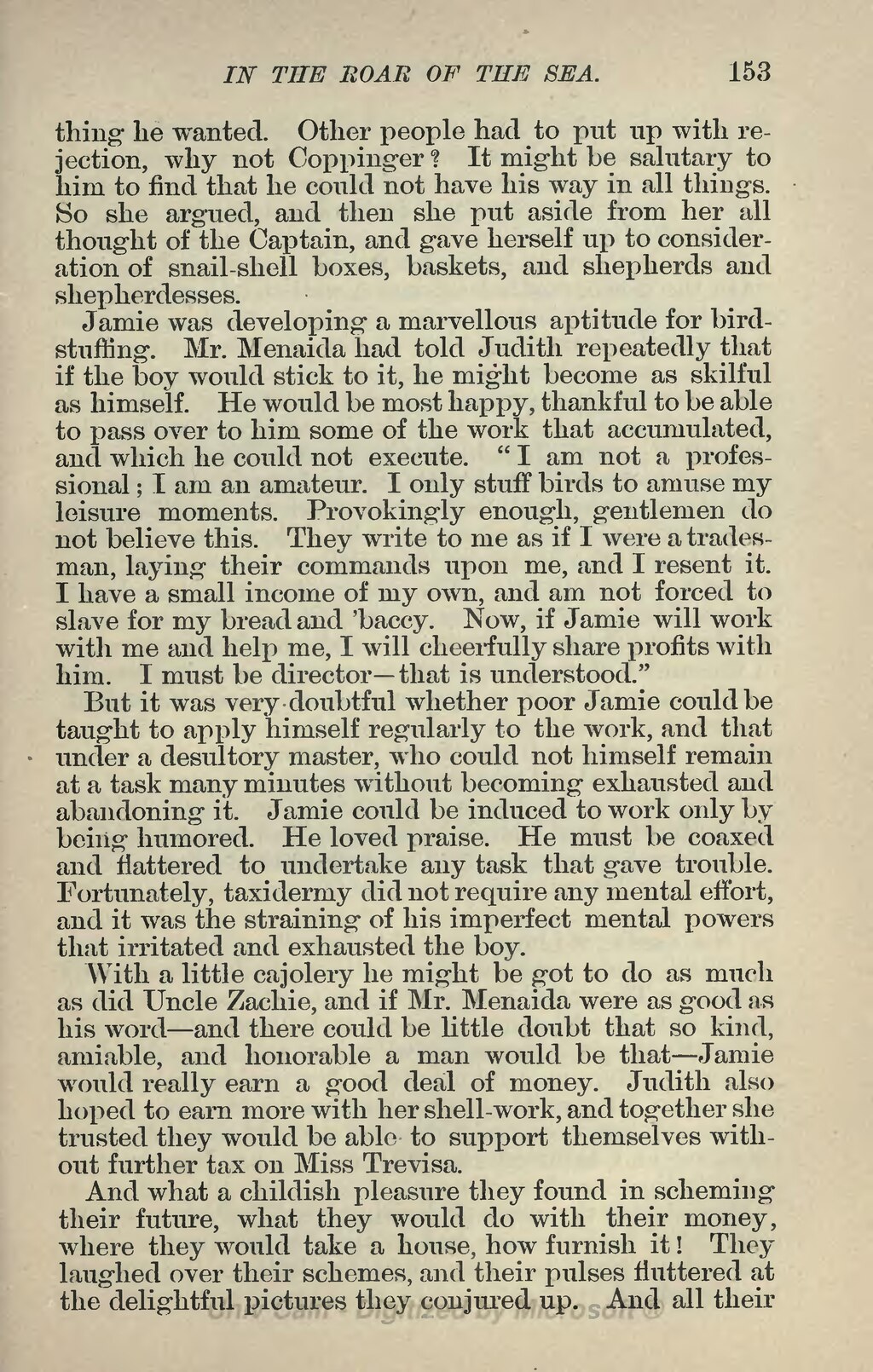thing he wanted. Other people had to put up with rejection, why not Coppinger? It might be salutary to him to find that he could not have his way in all things. So she argued, and then she put aside from her all thought of the Captain, and gave herself up to consideration of snail-shell boxes, baskets, and shepherds and shepherdesses.
Jamie was developing a marvellous aptitude for bird-stuffing. Mr. Menaida had told Judith repeatedly that if the boy would stick to it, he might become as skilful as himself. He would be most happy, thankful to be able to pass over to him some of the work that accumulated, and which he could not execute. "I am not a professional; I am an amateur. I only stuff birds to amuse my leisure moments. Provokingly enough, gentlemen do not believe this. They write to me as if I were a tradesman, laying their commands upon me, and I resent it. I have a small income of my own, and am not forced to slave for my bread and 'baccy. Now, if Jamie will work with me and help me, I will cheerfully share profits with him. I must be director—that is understood."
But it was very doubtful whether poor Jamie could be taught to apply himself regularly to the work, and that under a desultory master, who could not himself remain at a task many minutes without becoming exhausted and abandoning it. Jamie could be induced to work only by being humored. He loved praise. He must be coaxed and flattered to undertake any task that gave trouble. Fortunately, taxidermy did not require any mental effort, and it was the straining of his imperfect mental powers that irritated and exhausted the boy.
With a little cajolery he might be got to do as much as did Uncle Zachie, and if Mr. Menaida were as good as his word—and there could be little doubt that so kind, amiable, and honorable a man would be that—Jamie would really earn a good deal of money. Judith also hoped to earn more with her shell-work, and together she trusted they would be able to support themselves without further tax on Miss Trevisa.
And what a childish pleasure they found in scheming their future, what they would do with their money, where they would take a house, how furnish it! They laughed over their schemes, and their pulses fluttered at the delightful pictures they conjured up. And all their
